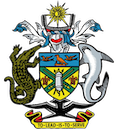The Ombudsman’s mandate to investigate maladministration includes ensuring that public authorities maintain respect for, and avoid abuse of people’s human rights and legal rights as preserved under the Constitution and other laws of Solomon Islands.
The fundamental rights and freedoms of individuals are well established in the national pdf Solomon Islands Constitution (506 KB) . These include the right to:
- life,
- personal liberty or freedom
- protection from slavery and forced labour
- protection from inhuman treatment
- protection from deprivation of property
- protection for privacy of home and other property
- protection of the law
- protection of freedom of conscience
- protection of freedom of expression
- protection of freedom of assembly and association
- protection of freedom of movement
- protection from discrimination on whatever grounds.
The United Nations’ Universal Declaration of Human Rights defines human rights as ‘rights inherent to all human beings’, regardless of race, sex, nationality, ethnicity, language, religion, or any other status. Human rights include the right to life and liberty, freedom from slavery and torture, freedom of opinion and expression, the right to work and education, and many more. Everyone is entitled to these rights, without discrimination.
The Ombudsman’s support for human rights is notable in the areas of non-discrimination and good governance, including equity, participation, transparency, accountability and the rule of law.
The Ombudsman’s Office basically promotes these rights through:
- its investigative role (including inspection of prisons & psychiatric hospitals) and recommendations to protect or rectify any violations of such rights; and
- stakeholder engagements (include meetings and consultations with officials of government ministries and agencies);
- outreach programs and publication of awareness materials; and
- participation in consultative processes (law and policy reform matters).
Any person who reasonably think that their inherent rights are at stake can complain about the same to the Ombudsman’s Office. They may alternatively seek legal assistance for possible enforcement of their rights at the High Court under section 18 of the Constitution.
